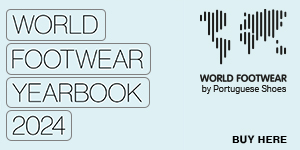FDRA fights for greater IP protections for US footwear industry

The claim was made by the Association’s President in a moment when counterfeits and seizures surge
Matt Priest, President of the Footwear Distributors and Retailers of America (FDRA), has claimed for the need of increased global footwear intellectual property (IP) protections. The position was defended by Mr. Priest when present before a special US government committee, headed by the Office of the United States Trade Representative (USTR) and including representatives from the US Patent and Trademark Office, Departments of Justice, Labor, Commerce, State and Homeland Security among others. The committee will use information gathered from the hearing to identify nations failing to provide adequate patent, trademark, copyright and trade secret protections.
"Our member companies devote significant resources to develop cutting-edge performance products and to protect the value of their brands. These efforts support thousands of American jobs - jobs that are put at risk by counterfeiting and piracy", Mr Priest stated during the hearing.
Calling for the US government to take all actions necessary to protect footwear innovations, designs, brands and images worldwide, Mr. Priest emphasized: "Seizures of counterfeit footwear increased by 356% during the latest three-year reporting period, and footwear went from being the twelfth most-seized product for IP violations in the world to the sixth - a stunning increase over a three year period."
According to the FDRA, infringers often use express mail and postal services to deliver counterfeit goods in small packages, making it more challenging for enforcement officials to interdict these goods. Illicit websites and e-commerce platforms, the "vast majority of which are based in China, ship counterfeit goods into the United States primarily using international mail services, such as the China-based express mail service EMS or the China Post. The same source informed that sellers often fraudulently report the contents or break shipments up into smaller packages to avoid detection.
The FDRA also claims that many counterfeiters use a country code top-level domain (ccTLD) to avoid detection and to avoid the reach of the US judicial system. Indeed, the FDRA member companies face significant trademark infringement, and lose valuable Internet traffic because of misleading and fraudulent domain names. A related concern is that ccTLDs lack transparent and predictable uniform domain name dispute resolution policies (UDRPs). Effective UDRPs should assist in the quick and efficient resolution of these disputes.
These issues will tend to be aggravated with the fast acceleration and growth of e-commerce globally, impacting not just the US, but many other countries.
"Our member companies devote significant resources to develop cutting-edge performance products and to protect the value of their brands. These efforts support thousands of American jobs - jobs that are put at risk by counterfeiting and piracy", Mr Priest stated during the hearing.
Calling for the US government to take all actions necessary to protect footwear innovations, designs, brands and images worldwide, Mr. Priest emphasized: "Seizures of counterfeit footwear increased by 356% during the latest three-year reporting period, and footwear went from being the twelfth most-seized product for IP violations in the world to the sixth - a stunning increase over a three year period."
According to the FDRA, infringers often use express mail and postal services to deliver counterfeit goods in small packages, making it more challenging for enforcement officials to interdict these goods. Illicit websites and e-commerce platforms, the "vast majority of which are based in China, ship counterfeit goods into the United States primarily using international mail services, such as the China-based express mail service EMS or the China Post. The same source informed that sellers often fraudulently report the contents or break shipments up into smaller packages to avoid detection.
The FDRA also claims that many counterfeiters use a country code top-level domain (ccTLD) to avoid detection and to avoid the reach of the US judicial system. Indeed, the FDRA member companies face significant trademark infringement, and lose valuable Internet traffic because of misleading and fraudulent domain names. A related concern is that ccTLDs lack transparent and predictable uniform domain name dispute resolution policies (UDRPs). Effective UDRPs should assist in the quick and efficient resolution of these disputes.
These issues will tend to be aggravated with the fast acceleration and growth of e-commerce globally, impacting not just the US, but many other countries.














